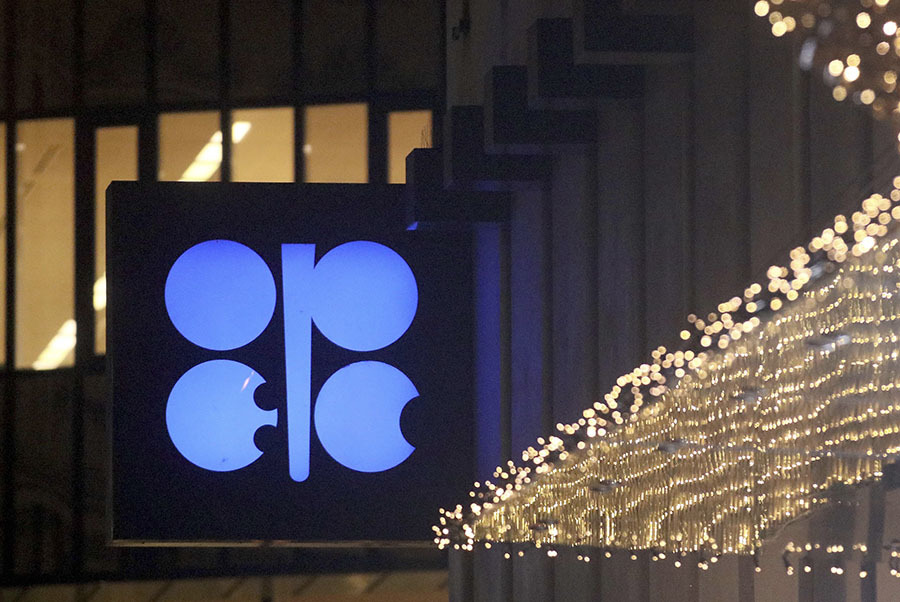On Tuesday, January 4, world oil prices rose to their highest level in almost a month and a half.
During the evening trading, the cost of raw materials on the ICE exchange in London rose by about 2% - to $ 80.5 per barrel.
The last time a similar value could be observed on November 26.
However, after that the quotes returned to the level of $ 79.7 per barrel.
Market players reacted positively to the results of negotiations between the countries participating in the OPEC + agreement.
At a meeting on Tuesday, representatives of the states decided to leave the previously agreed plans unchanged and continue to increase oil production from February 2022.
As Russian Deputy Prime Minister Alexander Novak said at the end of the meeting, there is still uncertainty in the world in connection with the spread of the omicron strain of coronavirus.
According to him, according to observations, the level of infection with the new variant of COVID-19 remains high, but the number of hospitalizations is now quite low, so the situation does not affect global fuel consumption.
“We believe that we must continue to fulfill the obligations that OPEC + assumed in the framework of increasing production (of oil. -
RT
).
Therefore, a common decision was made, all countries supported that in February the increase in production by 400 thousand barrels per day will be continued, "Novak said on the air of the Russia 24 TV channel.
Recall that the OPEC + agreement includes 24 oil-producing countries, including Russia.
As part of the deal, the states jointly control the production of raw materials to achieve a balance between supply and demand in the global hydrocarbon market.
Such a policy should keep oil prices from sharp collapses.
In the summer of 2021, in connection with the recovery of the global economy from the consequences of the pandemic, fuel consumption in the world began to grow markedly.
Under these conditions, since August, the countries - oil exporters began to gradually increase the production of hydrocarbons - by 400 thousand barrels per day per month.
AP
© Ronald Zak
“The decision to further increase production in February suggests that OPEC + is positive about the dynamics of the recovery in world oil demand.
Therefore, the market reacts with short-term price increases.
In the future, an increase in supply may lead to a decrease in quotations.
Most likely, in the near future, prices will return to the corridor of $ 65-75 per barrel, "Artyom Deev, head of the analytical department of AMarkets, suggested in an interview with RT.
A similar point of view is shared by Natalia Milchakova, Deputy Head of the Alpari Information and Analytical Center.
In her opinion, in January a barrel of Brent oil will be traded at $ 68-77.
Meanwhile, throughout the year, the expert predicts a wider range of prices - $ 65-90 per barrel.
“Most likely, the average oil price for 2022 will be closer precisely to $ 90 per barrel than to $ 65.
We see that the energy crisis continues in many countries, and the decision of the United States to increase sales of raw materials from its reserves is unlikely to have a strong impact on the market, "Milchakova said.
Limits of permissible
According to experts from the Danish investment bank Saxo Bank, in 2022 oil prices may briefly rise above $ 100 per barrel.
As previously suggested in an interview with RT, the organization's chief economist Steen Jacobsen, in the event of a cold winter in a number of countries, quotations are even able to approach $ 110-120 per barrel.
However, most analysts interviewed by RT consider such a forecast unlikely.
At the same time, experts do not expect a serious drop in energy prices this year.
“Even if oil prices are influenced by any factors and fall below $ 40 per barrel, this fall will be short-term.
To stabilize the situation on the market, the OPEC + countries will again begin to sharply cut production again.
Shale oil producers will not stand aside either, since if the cost of raw materials is below $ 40 per barrel, their production will become unprofitable, "Vladimir Chernov, an analyst at Freedom Finance, told RT.
According to Natalia Milchakova, keeping oil prices at a relatively high level will have a beneficial effect on the Russian economy.
According to the expert, due to the rise in the cost of raw materials, the volume of budget revenues in 2022 will continue to exceed the amount of expenses.
“The Russian budget is balancing with the oil price at $ 42.3 per barrel.
Today, quotations are almost twice this level, respectively, the treasury receives much more revenue than it was planned.
Although Russia is gradually overcoming its dependence on oil and gas, the country remains one of the largest exporters of energy raw materials in the world and cannot but benefit from high prices for hydrocarbons, ”Milchakova emphasized.
According to her, the state will use additional revenues to replenish reserves and develop the economy.
So, money from the sale of oil can go to the National Welfare Fund (NWF) to create savings for the future.
At the same time, part of the funds of the NWF can be used in the implementation of large production projects of national importance, Natalya Milchakova believes.

